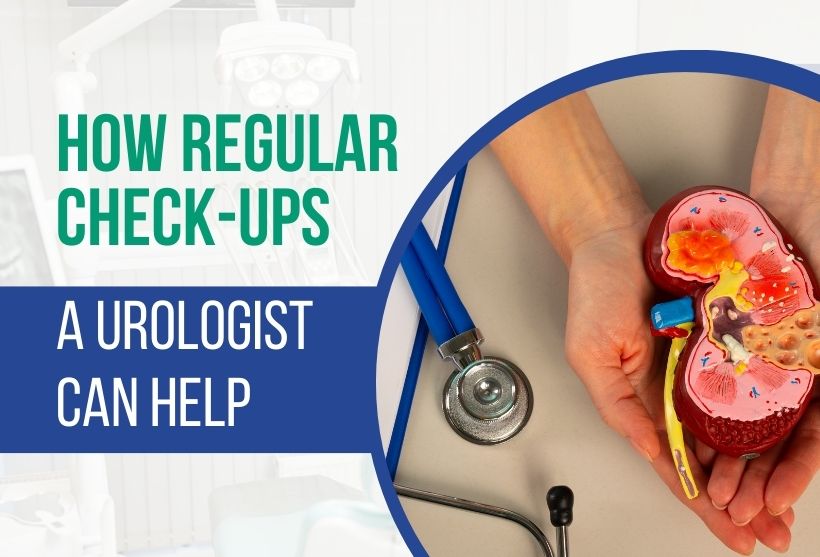How Regular Check-Ups With a Urologist Can Help

Many people avoid visiting a urologist—mostly out of embarrassment. One has to realize that with age, people need medical help in certain parts of their body, and there’s nothing to feel shy about it. As the name suggests, urologists are doctors specializing in the urinary tract (kidneys, ureters, bladder, and urethra) and the male reproductive system. This blog is more of an awareness blog that sheds light on the importance of regular check-ups. Read on to understand how urologists diagnose and treat a wide range of conditions, some of which you might not even realize are connected to urology.
What Kinds of Issues Can a Urologist Treat?
Urinary Tract Infections (UTIs): These are common infections that can affect any part of the urinary system.
Kidney Stones: Hardened mineral deposits that can cause severe pain and blockage.
Incontinence: Loss of bladder control, which can range from occasional leaks to complete inability to hold urine.
Prostate Problems: This includes an enlarged prostate (benign prostatic hyperplasia or BPH), prostatitis (inflammation), and prostate cancer.
Erectile Dysfunction (ED): Difficulty achieving or maintaining an erection.
Male Infertility: Problems with sperm production or delivery that can affect a couple's ability to conceive.
Cancers of the Urinary Tract: Including bladder cancer, kidney cancer, and prostate cancer.
Why Are Regular Check-Ups Important?
Detecting Problems Early: Many urological conditions, especially cancers, often have no noticeable symptoms in the early stages. Early detection through screenings significantly increases the chances of successful treatment and recovery.
Prevent Serious Complications: Conditions like UTIs, if left untreated, can lead to kidney infections. Regular checks can identify and address these issues promptly.
Manage Existing Conditions: For those already diagnosed with a urological condition, regular visits help monitor the condition's progress and adjust treatment plans as needed.
Improve Quality of Life: Urological problems can significantly impact your daily life and overall well-being. Regular care can help manage symptoms and improve your quality of life.
When Should You Start Seeing a Urologist?
While there's no one-size-fits-all answer, here are some general guidelines:
- Men: Consider starting regular check-ups around age 50, or earlier if you have a family history of prostate problems.
- Women: It's a good idea to see a urologist if you experience recurrent UTIs, incontinence, or any other urinary issues.
- Anyone with Symptoms: If you experience any concerning symptoms like blood in your urine, difficulty urinating, or persistent pelvic pain, schedule an appointment with a urologist regardless of your age.
Don't Be Embarrassed
Many people avoid seeing a urologist due to embarrassment or fear. Remember that these specialists are trained to handle sensitive issues with compassion and discretion.
Regular check-ups with a urologist are an essential part of proactive healthcare. By prioritizing these visits, you can catch potential problems early, manage existing conditions effectively, and enjoy a better quality of life!
